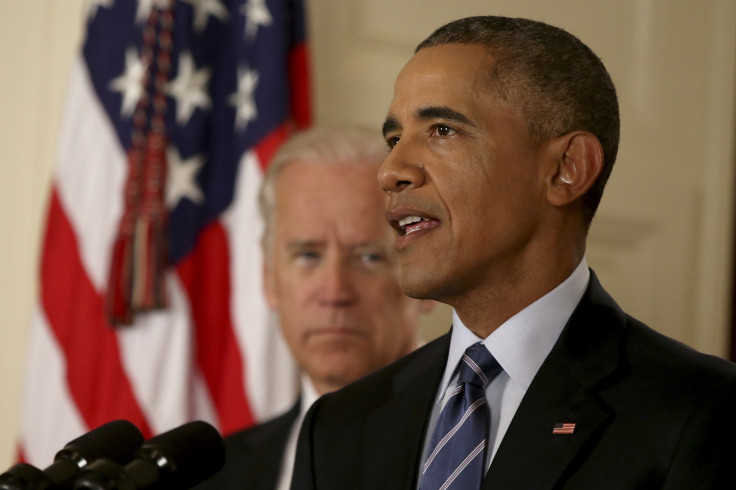Iran agreement was only option to ward off arms race in Middle East says Barack Obama

US President Barack Obama has defended the historic nuclear deal with Iran stating that the agreement was the "only possible way to avert a potential arms race in the Middle East".
Iran and the P5+1 group of nations - the United States, Britain, France, China, Russia and Germany – agreed to relieve sanctions against Tehran in exchange for the country slashing its ability to produce nuclear weapons, in Vienna on 14 July.
While the deal was condemned by US Conservatives, the Congress has 60 days to consider the agreement and lift sanctions.
On 15 July, Obama said that the US faced the "fundamental choice of resolving the Iran nuclear deal peacefully".
"I expect the debate to be robust, and that's how it should be," the US president said and added that lawmakers who are against the deal should "remember the alternatives".
"Without a deal, we risk even more war in the Middle East, and other countries in the Middle East would feel compelled to develop their own nuclear weapons... the chain of events would risk a nuclear arms race in the most dangerous region in the world," he said in his address at the White House.
Meanwhile, the Israeli Security Cabinet rejected the deal and said that the country was not bound by it.
Israeli Prime Minister Benjamin Netanyahu described the agreement as a "bad deal" and a "historic mistake".
Soon after the agreement was reached, Netanyahu convened an emergency session of the cabinet and stated: "I come here from a discussion in the Security Cabinet. The cabinet unanimously rejected the major powers' nuclear agreement with Iran and it determined that Israel is not bound by it."
"The world's leading powers have gambled on our common future in a deal with the main financer and operator of global terrorism. This is a historic mistake! We were right when we said that the desire to sign an agreement was apparently stronger than anything else; therefore, we did not commit to prevent the agreement. We did commit to prevent Iran from arming itself with nuclear weapons - and this commitment stands."
However, sceptics on the other hand feel that the deal is a blessing in disguise for Israel.
Uri Dromi, who was the spokesman of the Yitzhak Rabin and Shimon Peres governments (previous governments in Israel) from 1992-96, has claimed: "I'll say again that this is a bad deal. But compared to the alternatives, it is perhaps the lesser evil. Israeli leadership should take a deep breath, weigh the new circumstances and act soberly."
© Copyright IBTimes 2025. All rights reserved.






















